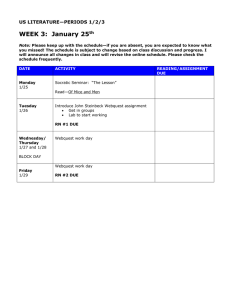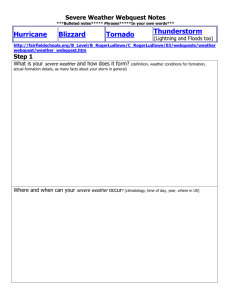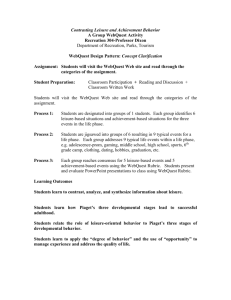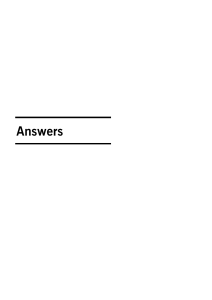WEBQUEST SUMMARY Title: Topic: Standard &
advertisement
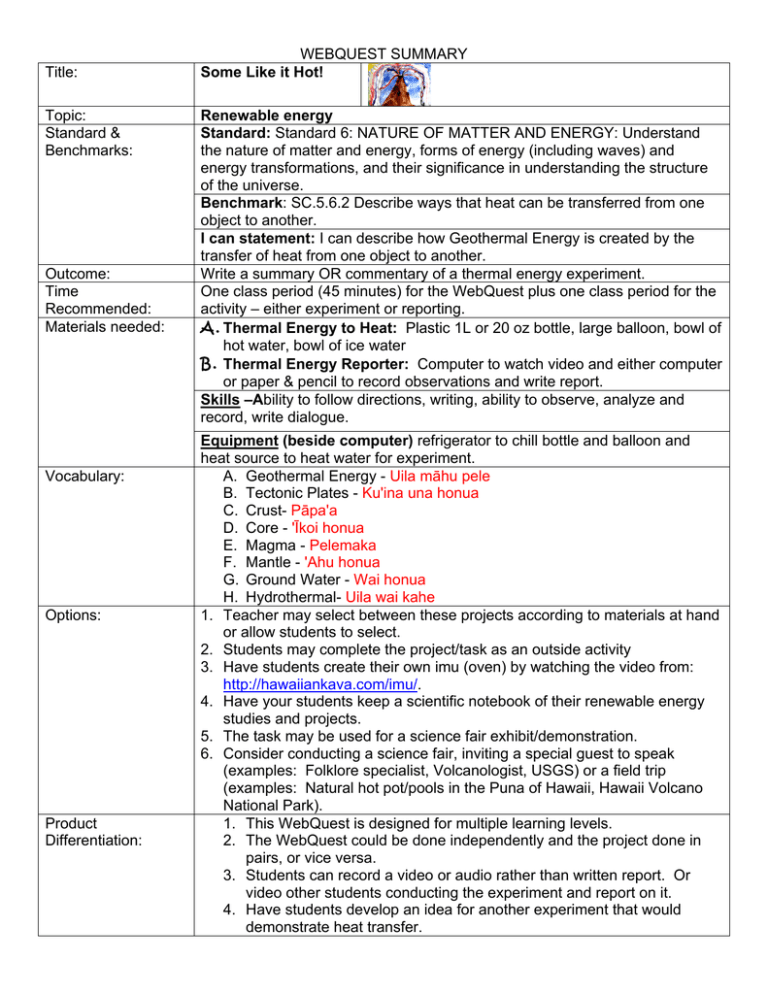
Title: Topic: Standard & Benchmarks: Outcome: Time Recommended: Materials needed: Vocabulary: Options: Product Differentiation: WEBQUEST SUMMARY Some Like it Hot! Renewable energy Standard: Standard 6: NATURE OF MATTER AND ENERGY: Understand the nature of matter and energy, forms of energy (including waves) and energy transformations, and their significance in understanding the structure of the universe. Benchmark: SC.5.6.2 Describe ways that heat can be transferred from one object to another. I can statement: I can describe how Geothermal Energy is created by the transfer of heat from one object to another. Write a summary OR commentary of a thermal energy experiment. One class period (45 minutes) for the WebQuest plus one class period for the activity – either experiment or reporting. A. Thermal Energy to Heat: Plastic 1L or 20 oz bottle, large balloon, bowl of hot water, bowl of ice water B. Thermal Energy Reporter: Computer to watch video and either computer or paper & pencil to record observations and write report. Skills –Ability to follow directions, writing, ability to observe, analyze and record, write dialogue. Equipment (beside computer) refrigerator to chill bottle and balloon and heat source to heat water for experiment. A. Geothermal Energy - Uila māhu pele B. Tectonic Plates - Ku'ina una honua C. Crust- Pāpa'a D. Core - 'Īkoi honua E. Magma - Pelemaka F. Mantle - 'Ahu honua G. Ground Water - Wai honua H. Hydrothermal- Uila wai kahe 1. Teacher may select between these projects according to materials at hand or allow students to select. 2. Students may complete the project/task as an outside activity 3. Have students create their own imu (oven) by watching the video from: http://hawaiiankava.com/imu/. 4. Have your students keep a scientific notebook of their renewable energy studies and projects. 5. The task may be used for a science fair exhibit/demonstration. 6. Consider conducting a science fair, inviting a special guest to speak (examples: Folklore specialist, Volcanologist, USGS) or a field trip (examples: Natural hot pot/pools in the Puna of Hawaii, Hawaii Volcano National Park). 1. This WebQuest is designed for multiple learning levels. 2. The WebQuest could be done independently and the project done in pairs, or vice versa. 3. Students can record a video or audio rather than written report. Or video other students conducting the experiment and report on it. 4. Have students develop an idea for another experiment that would demonstrate heat transfer.
